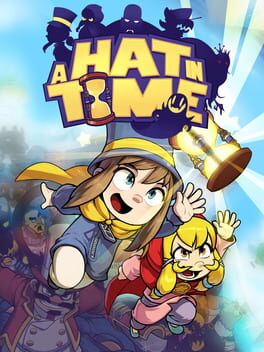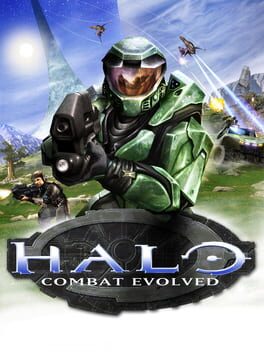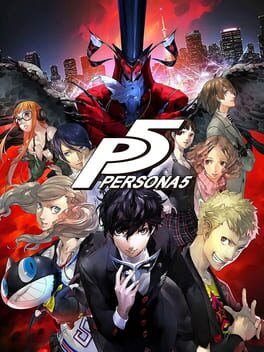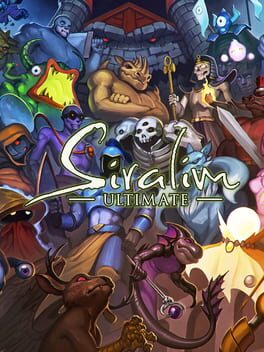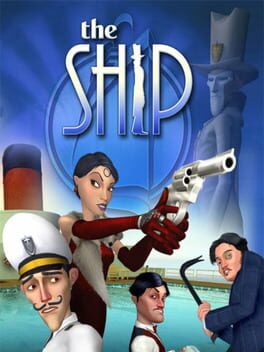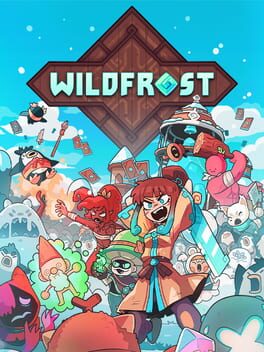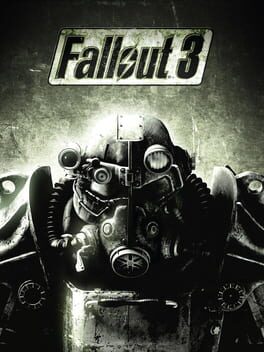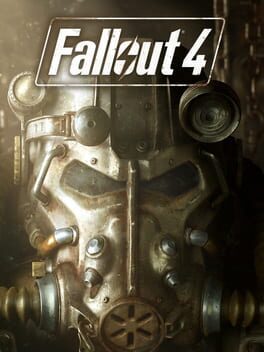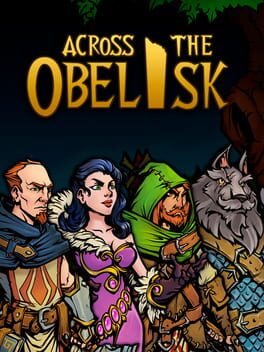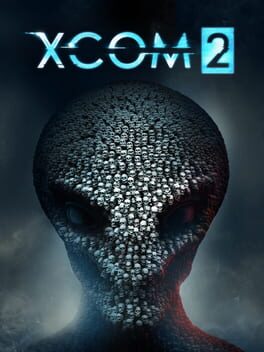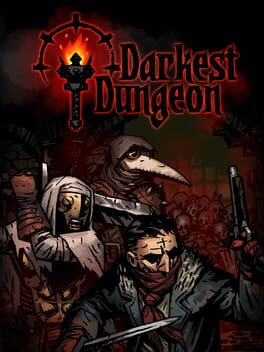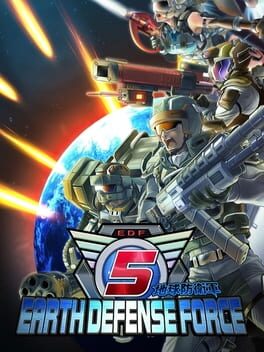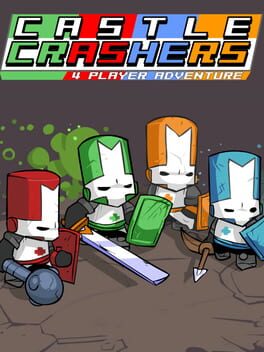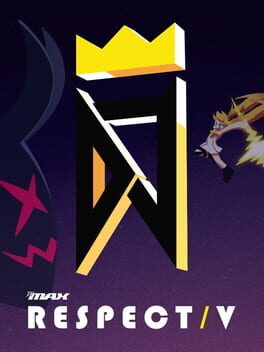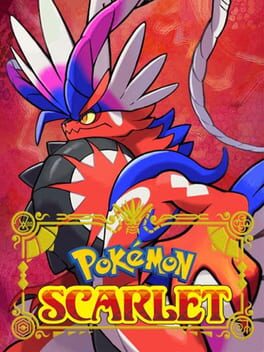TallFilth
2017
2001
Has some great levels that unfold in really cool ways and some excellent individual encounters, but I have to question why the world's most badass super soldier seems to be in no rush to get anywhere- painfully slow movement makes so much of the game far less dynamic than it should be. Also, there's a lot of outright crappy level design, and poor weapon balance combined with only being able to hold 2 weapons means you'll spend much of the game using the same handful of power weapons which aren't particularly interesting to use. The only thing that's actually fundamentally good is the enemy AI, which is smart and aggressive enough on higher difficulties to keep things interesting sometimes (when the level design allows).
2016
Maybe everyone just thinks the first Persona game they play is the best- for me that was Persona 4. I was massively hyped for 5 at its release but was disappointed to find that despite its incredible sense of style and overall fantastic visuals and sound design combined with fun gameplay... it kinda sucks. Entirely because of the story, which makes up a huge chunk of the game. The characters are, by and large, the same goddamn characters from 3 and 4 but with way less depth. Persona 4 used its dungeons to explore the psyches of its main characters, forcing the game to write at least some nuance and depth into all of them (Kanji is a really fantastic standout character). Persona 5 instead uses dungeons to explore the minds of its villains, but it has nothing interesting to say about them. Every villain for most of the game is essentially the same person- just an egomaniac sociopath who does bad things because they have no moral compass and only care about themselves and that's all you really need to know. Shadows, established previously in the series as the worst aspect of oneself that characters are forced to face, are almost always in P5 just the same exact person as their already-villanous owners whose mind-dungeon you're exploring, rendering the whole concept beyond pointless. The result is a story about a bunch of bland characters going on a moral crusade against a bunch of bland villains (then the story suddenly comes to life for one chapter when it switches back to the persona 4 forumla... oh well).
Worse yet, there's absolutely baby-level social commentary (sure, yes, adults screw over young people- but like, why? the game wants to comment on society and Japanese society in particular but it's so broad as to be meaningless). Even worse, the game floats the idea of investigating whether what the main characters are actually doing is moral- after all, if they're stopping evildoers by fundamentally altering their souls such that they repent for their crimes, are the people they are now (after being radically transformed on a base level by magic) even really culpable for the crimes of their past selves? It's a fascinating question that the game poses but seems to basically discard as insignificant. I suppose I could've suspended disbelief if the game were wholly disinterested in the question but it seems self-aware enough to have the characters discuss it but, again, the game has nothing interesting to say. Why does evil exist? Because some people have bad souls which need to be fixed, then also after they're fixed they should be thrown in prison for life as punishment for their formerly inherently bad nature. (If the game were actually brave enough to full-throatedly posit this it might actually be worth investigating but it's really just an unintended consequence of its refusal to explore its own themes).
I'd probably have a much higher opinion of this game without a basis for comparison for how its characters could have been handled, but it does itself no favors by basically borrowing its entire cast for the second time now then doing those same characters worse than ever.
Worse yet, there's absolutely baby-level social commentary (sure, yes, adults screw over young people- but like, why? the game wants to comment on society and Japanese society in particular but it's so broad as to be meaningless). Even worse, the game floats the idea of investigating whether what the main characters are actually doing is moral- after all, if they're stopping evildoers by fundamentally altering their souls such that they repent for their crimes, are the people they are now (after being radically transformed on a base level by magic) even really culpable for the crimes of their past selves? It's a fascinating question that the game poses but seems to basically discard as insignificant. I suppose I could've suspended disbelief if the game were wholly disinterested in the question but it seems self-aware enough to have the characters discuss it but, again, the game has nothing interesting to say. Why does evil exist? Because some people have bad souls which need to be fixed, then also after they're fixed they should be thrown in prison for life as punishment for their formerly inherently bad nature. (If the game were actually brave enough to full-throatedly posit this it might actually be worth investigating but it's really just an unintended consequence of its refusal to explore its own themes).
I'd probably have a much higher opinion of this game without a basis for comparison for how its characters could have been handled, but it does itself no favors by basically borrowing its entire cast for the second time now then doing those same characters worse than ever.
2021
Wildly ambitious and experimentation is a lot of fun for a while with the absurd number of monsters / trait combinations / etc. but I kept hitting exactly the wrong types of brick walls (like a team based on all of my monsters sharing stat gains which worked incredibly well... but made every combat encounter take an absurdly long amount of time). Siralim is all about creating complex and deliberately broken teams to overcome seemingly impossible challenges, but the interface seems to think it's just a regular monster-collecting JRPG, leading to the game containing a ton of mind-numbing waiting for normal battles to end (you can automate but even at maximum speed they can still take a really long time). I think you could take the monsters and overall design of the game and port it into something that feels actually built to control them in a way that isn't hugely time-wasting and you'd have a really great game.
2004
2023
Really solid and fun core gameplay. Impressively well-designed in most ways. I really only have 2 issues with the game:
1. There are 3 playable factions, but the first one is basically The Boring One.
2. You lose your run if your leader dies, and it's very easy to cause this simply by not noticing something (for example, there's a unit you can use which automatically kills all allies in the same row as it at the start of combat, so if you use that unit and ever accidentally leave it in the same row as your leader when you start combat your run immediately ends). The game ends up being more cerebrally intensive than it needs to be because you really should check over every single card every single round to make sure something bad doesn't happen. Inevitably once you get comfortable with the game you'll stop doing this and occasionally randomly lose runs to something you failed to notice because you're in an easy fight.
That's a lot of negative stuff, but seriously, the game is incredibly fun and full of a ton of really clever and elegant ideas. It's also shockingly well-balanced for a roguelike.
1. There are 3 playable factions, but the first one is basically The Boring One.
2. You lose your run if your leader dies, and it's very easy to cause this simply by not noticing something (for example, there's a unit you can use which automatically kills all allies in the same row as it at the start of combat, so if you use that unit and ever accidentally leave it in the same row as your leader when you start combat your run immediately ends). The game ends up being more cerebrally intensive than it needs to be because you really should check over every single card every single round to make sure something bad doesn't happen. Inevitably once you get comfortable with the game you'll stop doing this and occasionally randomly lose runs to something you failed to notice because you're in an easy fight.
That's a lot of negative stuff, but seriously, the game is incredibly fun and full of a ton of really clever and elegant ideas. It's also shockingly well-balanced for a roguelike.
2008
Pretty much all of the criticism of Fallout 3 is correct, but it tends to leave out that exploring its wasteland is actually pretty fun. The main story sucks ass, but the side stuff makes up for it, and the gameplay's actually pretty fun even if it isn't particularly balanced or deep (the way that it all feels held together by duct tape gives it a particular and satisfying feel).
2015
2021
Trying out different party compositions and builds and the like is very fun and probably the core selling point of the game. Sets itself apart from other card-based roguelites by 1. giving you 4 characters, and 2. giving you massive control over what winds up in their decks (in adventure mode, anyway), so you can deckbuild super freely. To that end, there's a lot to experiment with and a lot of fun to be had if you like the genre, but the core design and balance is just not on the level of slay the spire or others. Also, the last world takes way too long to get through and turns the end of most runs into a chore, especially if you have a good run going and winning is practically a foregone conclusion.
2016
XCOM 2 sucks due to one system and one system only. Everything else about the game is great. Unfortunately, it's held back by the way enemy spawning works.
When one of your units gets close enough to an unseen "pod" of enemies, that effectively spawns those enemies, causing them to enter combat. Those enemies immediately get one free movement action and will then act on the next enemy turn. It sounds like a fine system, but it carries with it a bunch of incredibly unfun implications.
First of all, it means you're CONSTANTLY playing around this mechanic, with every single movement decision you ever make prioritizing the risk of spawning enemies above all else. Spawning new enemies with your first soldier's action on your turn is great. Spawning new enemies with your last soldier's last action basically means you lose on the spot. You have to constantly be mindful of never sending anyone too far from your other soldiers and never sending anyone too far ahead of your first one or two movements. The problem with that is... it means your actual tactical options in nearly all situations are incredibly limited. I quickly learned that trying to flank enemies on most maps (unless making use of very specific mechanics like a stealthed unit) is beyond pointless- you get a better chance to hit if you get lucky, but if your flanker bumbles into enemies they just die on the spot.
This mechanic was present in the previous XCOM game and incentivized just slowly and methodically moving your squad through every map without taking any risks. It was kind of a mess, though the game was ultimately still pretty fun. XCOM 2 tries to spice this up by adding time limits to missions, which is sort of a good idea but doesn't really fix the core problem. It's still suicide to try to do anything remotely clever, you just have to make sure you're moving your squad EFFICIENTLY now. They also tried to balance the game a bit more by making classes (including the special DLC ones) that specialize in close combat WAY stronger, which is nice, but doesn't work too well in practice. Yes, if you get a soldier with a shotgun directly next to an enemy they'll pretty much one-shot it, but the act of doing so risks extending your vision far enough that you'll just spawn more enemies, throwing the risk/reward ratio off.
Once you understand these systems the game isn't all that hard (though it's generally much, much tougher than XCOM 1 which is nice) but it's often just.. boring. So often I felt like I had ideas for what I wanted to do, risky or interesting maneuvers to take advantage of the terrain, but had to nix the idea because it involves moving in such a way that I might spawn enemies and die on the spot.
One last unrelated complaint- the randomness adds interesting variance and emergent situations but I've always been baffled by games of this nature that are weirdly unwilling to just give you a 100% chance sometimes. If you actually do manage to get one of those close-range soldiers up close only to find they have a 91% chance of hitting and then they miss and die (because they're at close range and in danger) it just feels so arbitrary and pointless.
Edit: There's actually another massive problem with the game- the base-building meta-progression stuff. It's mostly just kinda uninteresting, but the real problem with it is you have to complete research projects and whatnot without knowing what their results will be, but (especially on higher difficulties) you can REALLY screw yourself by not getting the right tech within the right timeframe. This means either trial-and-erroring your way though and potentially losing a run because you fell behind or just looking up a guide or something. It's not inherently problematic to lose a run because you failed to manage your base properly, the problem is the base management is boring- I'm in it for the tactical combat, I don't want to lose because I didn't have foreknowledge that it's a waste of time to perform an autopsy on Glup Shitto and you should instead prioritize building the Blowjob Factory.
When one of your units gets close enough to an unseen "pod" of enemies, that effectively spawns those enemies, causing them to enter combat. Those enemies immediately get one free movement action and will then act on the next enemy turn. It sounds like a fine system, but it carries with it a bunch of incredibly unfun implications.
First of all, it means you're CONSTANTLY playing around this mechanic, with every single movement decision you ever make prioritizing the risk of spawning enemies above all else. Spawning new enemies with your first soldier's action on your turn is great. Spawning new enemies with your last soldier's last action basically means you lose on the spot. You have to constantly be mindful of never sending anyone too far from your other soldiers and never sending anyone too far ahead of your first one or two movements. The problem with that is... it means your actual tactical options in nearly all situations are incredibly limited. I quickly learned that trying to flank enemies on most maps (unless making use of very specific mechanics like a stealthed unit) is beyond pointless- you get a better chance to hit if you get lucky, but if your flanker bumbles into enemies they just die on the spot.
This mechanic was present in the previous XCOM game and incentivized just slowly and methodically moving your squad through every map without taking any risks. It was kind of a mess, though the game was ultimately still pretty fun. XCOM 2 tries to spice this up by adding time limits to missions, which is sort of a good idea but doesn't really fix the core problem. It's still suicide to try to do anything remotely clever, you just have to make sure you're moving your squad EFFICIENTLY now. They also tried to balance the game a bit more by making classes (including the special DLC ones) that specialize in close combat WAY stronger, which is nice, but doesn't work too well in practice. Yes, if you get a soldier with a shotgun directly next to an enemy they'll pretty much one-shot it, but the act of doing so risks extending your vision far enough that you'll just spawn more enemies, throwing the risk/reward ratio off.
Once you understand these systems the game isn't all that hard (though it's generally much, much tougher than XCOM 1 which is nice) but it's often just.. boring. So often I felt like I had ideas for what I wanted to do, risky or interesting maneuvers to take advantage of the terrain, but had to nix the idea because it involves moving in such a way that I might spawn enemies and die on the spot.
One last unrelated complaint- the randomness adds interesting variance and emergent situations but I've always been baffled by games of this nature that are weirdly unwilling to just give you a 100% chance sometimes. If you actually do manage to get one of those close-range soldiers up close only to find they have a 91% chance of hitting and then they miss and die (because they're at close range and in danger) it just feels so arbitrary and pointless.
Edit: There's actually another massive problem with the game- the base-building meta-progression stuff. It's mostly just kinda uninteresting, but the real problem with it is you have to complete research projects and whatnot without knowing what their results will be, but (especially on higher difficulties) you can REALLY screw yourself by not getting the right tech within the right timeframe. This means either trial-and-erroring your way though and potentially losing a run because you fell behind or just looking up a guide or something. It's not inherently problematic to lose a run because you failed to manage your base properly, the problem is the base management is boring- I'm in it for the tactical combat, I don't want to lose because I didn't have foreknowledge that it's a waste of time to perform an autopsy on Glup Shitto and you should instead prioritize building the Blowjob Factory.
2015
Its like 80% of the way to being a great game- fantastic aesthetic, cool gameplay, but there are two fundamental problems holding it back:
1. There's a lot of RNG stacked on top of more RNG- nearly everything that happens is random in some capacity which can lead to deaths that feel really unfair and arbitrary. That's not inherently a bad thing- unfair and arbitrary deaths should make a bleak game like this better, but...
2. The only actual punishment the game hits you with for characters dying is just.. grinding. You can't lose a run of darkest dungeon (to my knowledge anyway), you just might have to grind up some new characters. Once you get used to the systems and the grinding becomes comfortable and easy the aforementioned RNG arbitrarily just becomes a source of frustration, as there's no longer any tension since the game threatens, at worst, to inconvenience you a bit.
It feels like Darkest Dungeon worked itself into a weird corner where if it were possible to lose an overall campaign in the same way you can in XCOM it might be a bit too unfair to appeal to most (I'd like it that way, though) and it results in an experience that feels simultaneously frustrating and toothless. That's not to say it's bad, it just really loses steam by the end once you've gained familiarity with the systems but now have to deal with the absolute slog of the final levels which constantly threaten to bad-luck you into a having to grind more.
1. There's a lot of RNG stacked on top of more RNG- nearly everything that happens is random in some capacity which can lead to deaths that feel really unfair and arbitrary. That's not inherently a bad thing- unfair and arbitrary deaths should make a bleak game like this better, but...
2. The only actual punishment the game hits you with for characters dying is just.. grinding. You can't lose a run of darkest dungeon (to my knowledge anyway), you just might have to grind up some new characters. Once you get used to the systems and the grinding becomes comfortable and easy the aforementioned RNG arbitrarily just becomes a source of frustration, as there's no longer any tension since the game threatens, at worst, to inconvenience you a bit.
It feels like Darkest Dungeon worked itself into a weird corner where if it were possible to lose an overall campaign in the same way you can in XCOM it might be a bit too unfair to appeal to most (I'd like it that way, though) and it results in an experience that feels simultaneously frustrating and toothless. That's not to say it's bad, it just really loses steam by the end once you've gained familiarity with the systems but now have to deal with the absolute slog of the final levels which constantly threaten to bad-luck you into a having to grind more.
2008
2020
A very solid core. Pricey. All of the best stuff, musically and chart-wise, comes from crossover packs- the actual MUSIC in the base game is mediocre modern rhythm game naptime. I miss when the default genre for rhythm games was eurobeat...
The ability to play every song in 4, 5, 6 or 8 button is neat in theory, I think, but I've never really understood the appeal of 5-button and 8-button has always felt really awkward to me. 4-button is a bit too simple and easy once you're experienced but it's a great on-ramp to learn. The issue is, in practice, I enjoy 6-button way more than anything else, but not all songs are playable on all difficulties on all button modes, making the song list sometimes feel artificially smaller. Your mileage may vary on that, if you like the variety of trying different control schemes it means you're getting a lot of bang for your buck with a ton of different charts available for each song.
The ability to play every song in 4, 5, 6 or 8 button is neat in theory, I think, but I've never really understood the appeal of 5-button and 8-button has always felt really awkward to me. 4-button is a bit too simple and easy once you're experienced but it's a great on-ramp to learn. The issue is, in practice, I enjoy 6-button way more than anything else, but not all songs are playable on all difficulties on all button modes, making the song list sometimes feel artificially smaller. Your mileage may vary on that, if you like the variety of trying different control schemes it means you're getting a lot of bang for your buck with a ton of different charts available for each song.
2022
Played for a few hours before I decided to stop and sell my copy because the game looks like shit and runs like shit. "Bad graphics" aren't inherently a problem but in cases like this where you can see what the game is trying to be and how short it's falling it's really rough. And, of course, it feels awful because of horrible optimization.
And for what? A pokemon game that's nominally open-world and is otherwise the same exact thing again? The biggest problem with pokemon games (other than their complete lack of polish) at this point is their refusal to allow the player to engage with any of the mechanics they designed which are pretty much all multiplayer-only. AI trainers don't even switch pokemon. A battle where no one switches is just test of whether you remember the type chart. Piss-poor AI results in a massive number of moves, abilities and entire pokemon being essentially pointless as there's never reason to do anything other than swing with super-effective attacks every turn of every fight. I'd love a hard difficulty, but that's not really the problem- where's the fun of exploring a new region full of new pokemon if a new pokemon is, in gameplay terms, the same thing as any other?
And for what? A pokemon game that's nominally open-world and is otherwise the same exact thing again? The biggest problem with pokemon games (other than their complete lack of polish) at this point is their refusal to allow the player to engage with any of the mechanics they designed which are pretty much all multiplayer-only. AI trainers don't even switch pokemon. A battle where no one switches is just test of whether you remember the type chart. Piss-poor AI results in a massive number of moves, abilities and entire pokemon being essentially pointless as there's never reason to do anything other than swing with super-effective attacks every turn of every fight. I'd love a hard difficulty, but that's not really the problem- where's the fun of exploring a new region full of new pokemon if a new pokemon is, in gameplay terms, the same thing as any other?
